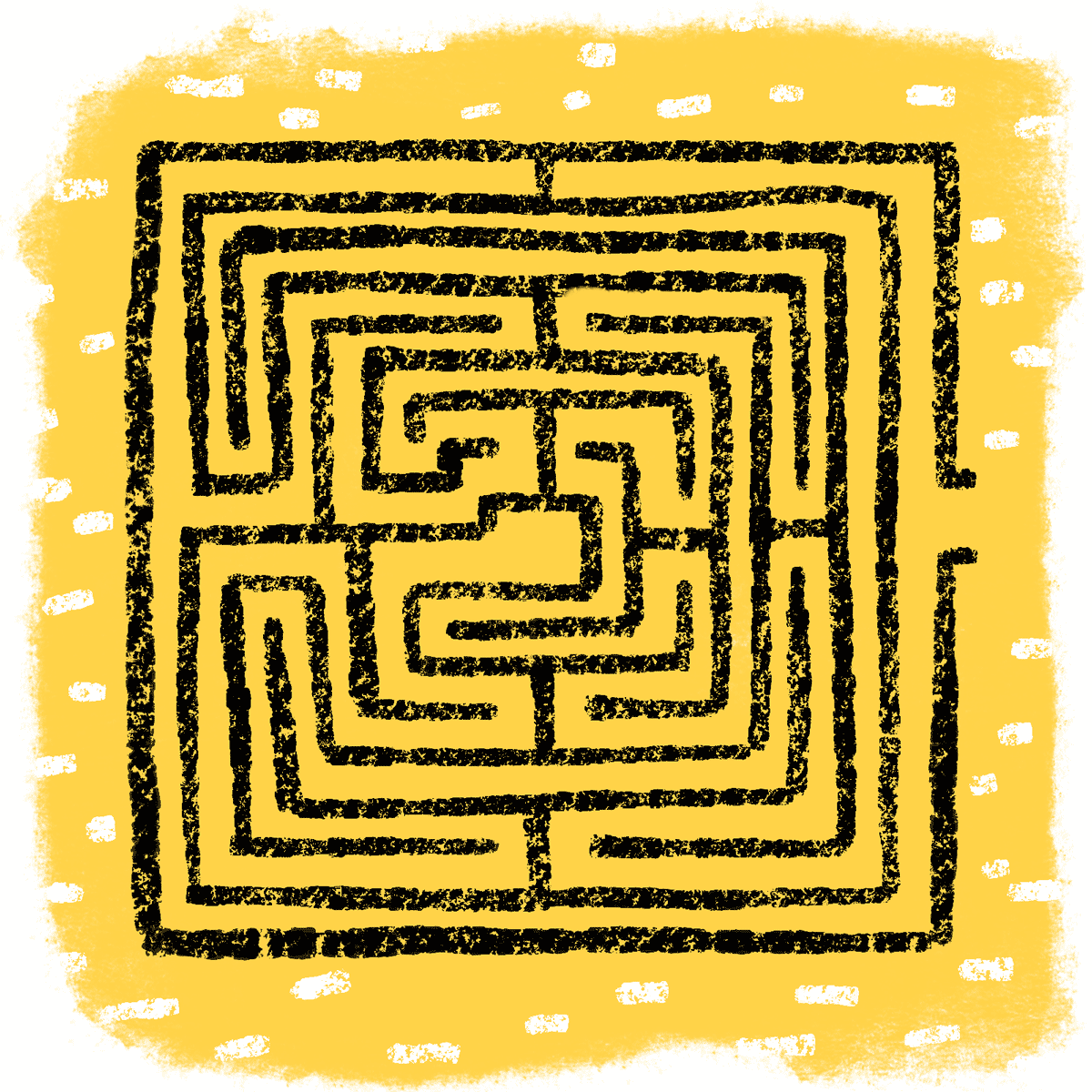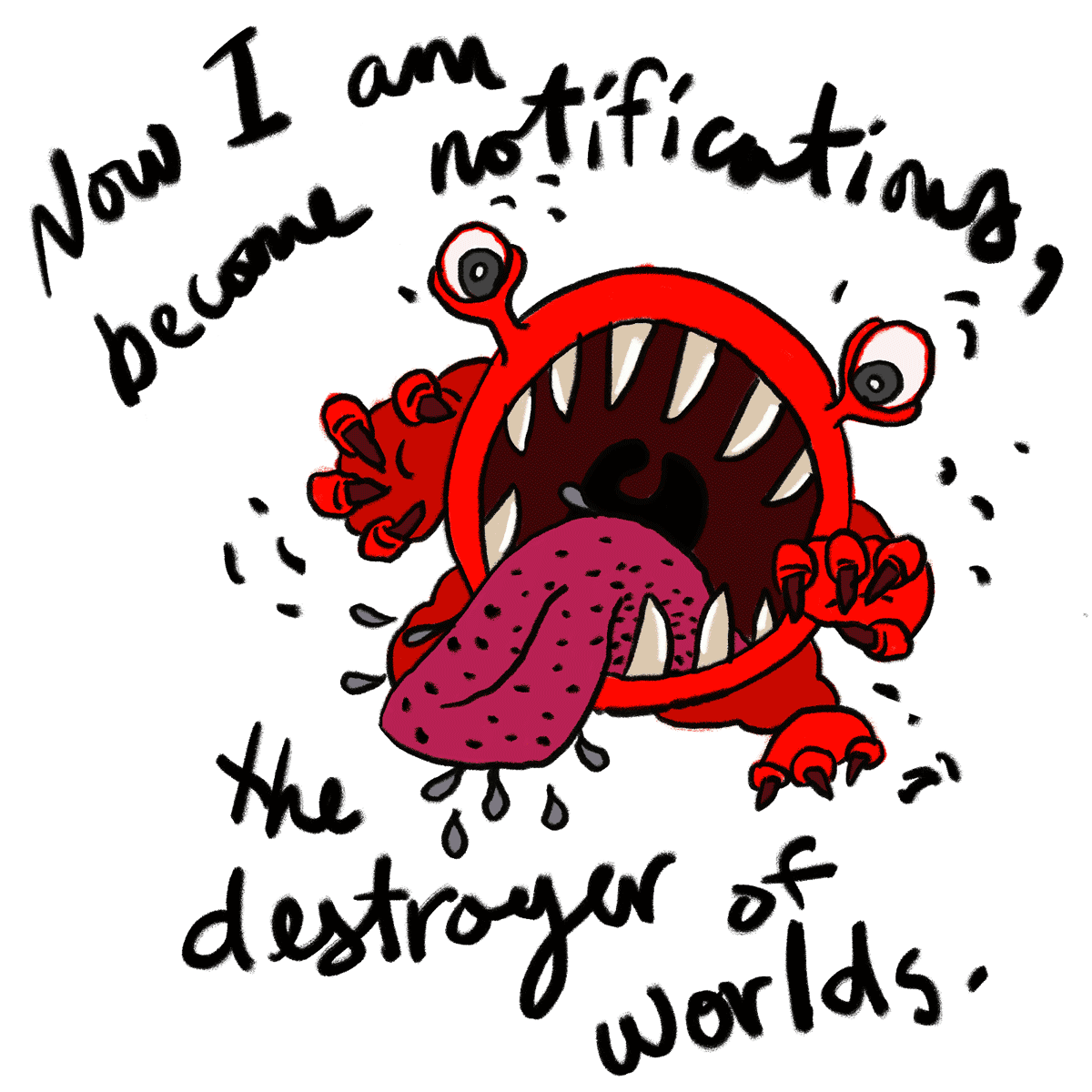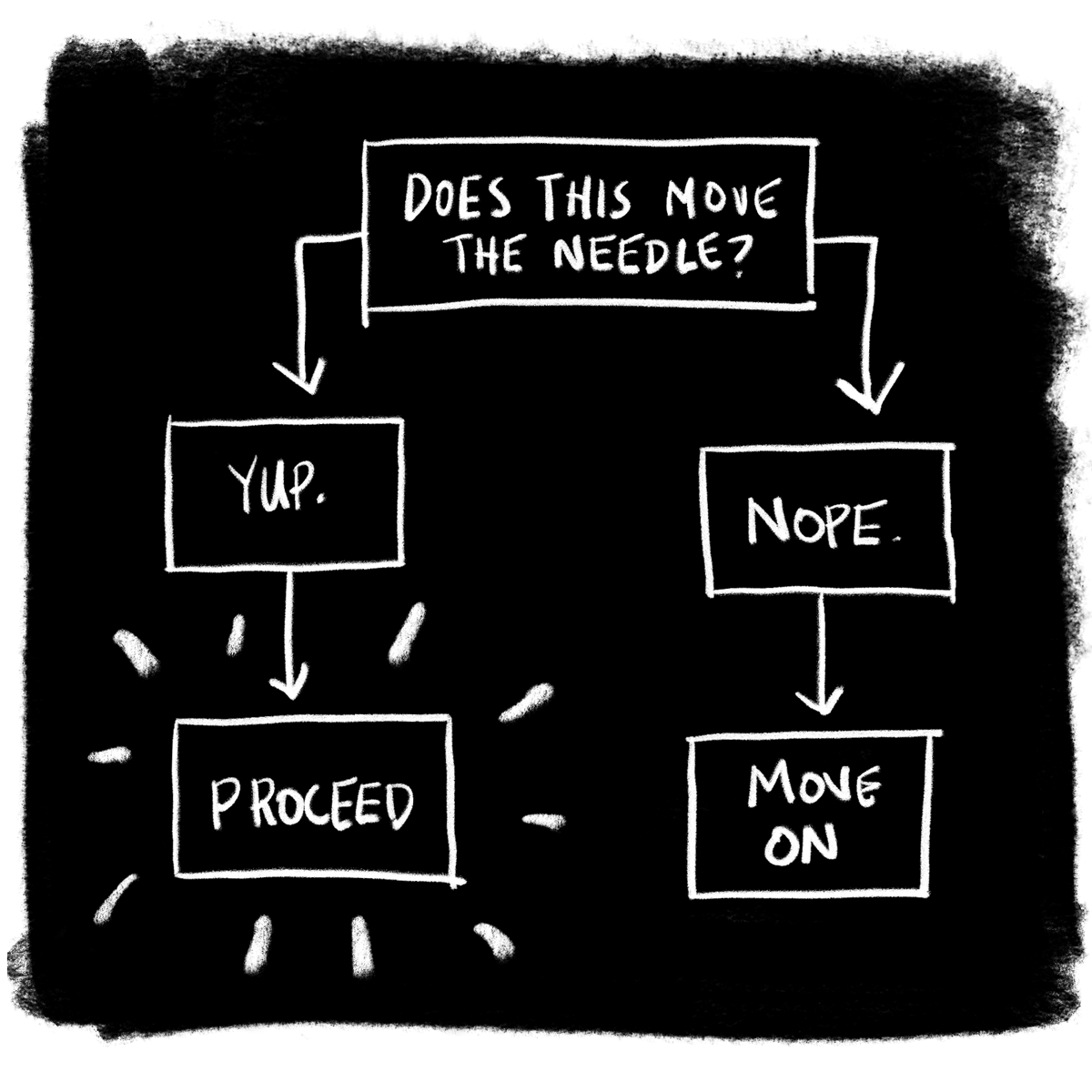The Needle
TL;DR: Founders commonly squander time on low-yield tasks. You can avoid this (sort of) by creating a system for rooting out distractions.

Hey! It’s been a while. Sorry about that. Life gets busy—but I don’t need to remind you of that. My bet is that your days are hectic, too.
This isn’t a “who’s busiest?” contest. Nope. This is a mea culpa. I began the year planning to write daily—but then dropped it. For two weeks, I stuffed your inbox with a post a each day. Then I disappeared. I can see how weird that must have seemed.
Again, I’m sorry.
What happened?
Last January, I identified four personal priorities. The last of those four was to share (hopefully useful) ideas on this blog. After two weeks, I realized that writing had consumed all the others. I neglected clients, family, and fitness—to meet an arbitrary writing schedule.
This isn’t uncommon. Non-essential tasks often balloon, leaving little time for the work that matters most. You blow 30 minutes responding to low yield emails. Somehow 2 hours dissolve, while reading product reviews (for a $20 app). Or, your morning goes into a crafting a social media post—you doubt anyone will even read.
“When you kill time, remember that it has no resurrection.”
—Aiden Wilson Tozer
I blame this poor use of time on fear. Who knows if one of those emails might turn into something? What if you pick the wrong app, and regret it? Will customers wonder if you’re out of business, if you don’t tweet something?
I also blame habit. For years, I responded to almost every email I received. What’s the return-on-investment for this time, though? In spite of knowing it’s low, I continue to write those responses. (In the back of my mind, a pesky voice sneers at me: “You keep doing this because of sunk cost1. You squandered your life on wasteful tasks like these. If you stop now, you’ll concede that this is true.”)
I take no pride in being busy. For entrepreneurs, there’s no gold-star for effort, nor any prize for who did the most. In business, the spoils go to the winner—whichever way they got there—in spite of how unfair this might seem.
Knowing this, you’d think we’d all be better at determining how to invest our precious time—but we aren’t. My bet is that we’re actually worse at it than ever before. Pings, vibrations, and other interruptions break our flow. This leaves us feeling busy, while accomplishing little.

If this were a good blog, I’d give you a 5 step method to organize your day for peak efficiency. Then, I’d give it a memorable title, like Smackdown!, Unleash the Ninja Within, or The 4-Second Mindset. It’d be a thing of wonder. LifeHacker would pick it up. Business Insider would reblog it. It’d show up in LinkedIn’s trending area. FAN. TAST. IC.
This is not that good of a blog. ?
Importance isn’t always clear
The best I can do, is share my experiences. And, like most experiences, mine are imperfect.
I always look for ways to be more efficient. This spring, though, I became more pointed in my efforts. I tore substantial tasks out of my day, to make better use of it. I then tested ways to optimize my days—and be as efficient as possible. This was a bit easier, as I had recently left social media. Distraction is not easily thwarted, though. In no time, I found myself absorbed by YouTube videos, Reddit threads, and other time-sucks. Even so, I persisted.
Some approaches worked for a while; others not at all. I clustered tasks. I set weekly objectives. I worked in Pomodoro bursts. Again, some of this worked. No matter the solution, though, I still found myself sucked back into non-essential matters. I suspect this is because value judgements aren’t clear cut.
Should I build a UI system for our new app2? Doing so would save time, long term, but is pointless if the app fails.
Should I contact journalists about our side-project3? One high-profile article could give it a lot of press—but what if none of them respond?
Should I use the old (not so great) photographer, who’ll get the job done? Or, should I put time into finding a better one?
This is the entrepreneur’s dilemma: Many tasks seem relevant. Deciding which are more relevant than the rest, isn’t easy.
“Deciding what not to do is as important as deciding what to do.”
― Steve Jobs
A simple mechanism
You can’t know which tasks will make the difference for your company. That’s because you’re traveling in uncharted territory. You’ll take some bad turns, end up in the wrong places, and wish you had made different choices. That’s how this stuff works. Beating yourself up about it won’t make it any easier.
That said, there is a lot of shit you just don’t need to do. One way to spot such things is to ask whether the task at hand is of critical importance. My quick test for this is to ask the question: “Does this move the needle?” Put another way: “Will this task provide a significant yield for my company?”

My client asks whether we should adjust the label by 3/16″ to fill a bit more space. I ask whether doing so will move the needle. He ponders this for a moment, decides it won’t, and the job goes to press—no hold-ups.
A stranger wants to argue with me, on the internet. I ask myself whether this interaction will move the needle. It won’t, so, I resist the urge to respond. (This is not easy for me to do.4)
I stare at the logo for our new venture, realizing it’s not quite there, yet. I ask myself if getting it right (now) will move the needle. While significant, I realize it’s not critical. So, I put it aside and move on to structuring the app’s pricing model—which is important.
As a business owner, a lot of tasks are competing for your interest. The ones you decide to act on will make all the difference for your company. Sure, this is common sense. Yet, I know all too many leaders who neglect customers, so they can post self-promotion, on Facebook. (Pro-tip: When unsure of what will move your needle most, try focusing on whichever task matters most to your customers.)
Homework
The more tasks you’re juggling, the harder it is to determine which ones matter. So, if you find yourself unable to tell the relevant from the unnecessary, press pause. Close your task management app, step away from your desk, and do something… anything… else. Go for a run. Walk the dog. Take a breather.
Once you have, ask yourself whether the last task you worked on was actually moving the needle. If the answer is yes, you’re in good shape. Alternatively, you might learn that you were doing something that just didn’t need doing.
—
- Sunk cost makes otherwise rational people crazy. I once spent an entire weekend manually shredding paper. Seriously. Sheet by sheet, hour after hour. I did so, because the longer it took, the more embarrassed I was for not picking a smarter approach, in the first place. By Sunday night, I had (literally) burnt the machine out.
- If you run a B2C company, and want to better support and communicate with your customers, please let me know. We’ll soon be looking for companies to test our new customer engagement tools.
- I did put some effort into this, and Campnab received some amount of attention. That said, I had to throttle this outreach. Client work was more pressing—and still pays better.
- This is hard for most people. When you find yourself ready to go into internet-battle, I recommend you pause and repeat to yourself: “Don’t take the bait.” After the fifth or sixth time, you’ll start to calm down—and likely choose to move on to something more productive.
I’m @karj and the above is just my opinion. Looking for more? Here’s a full list of articles and information on my books. This is what I’m doing now, and what I don’t do. I’d love it if you tried Emetti on your website!